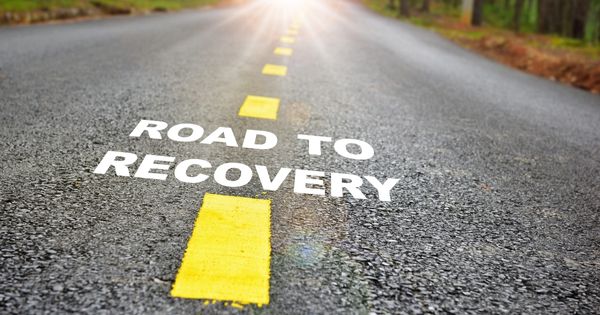Addiction aftercare is an essential part of addiction recovery, which is offered in sober living homes in different parts of the USA, such as San Diego sober living, but what is it? What are the different types of aftercare treatment centers available? And how do you know which type of aftercare treatment is right for you?
In this blog post, we’ll answer all those questions and more. So if you’re seeking addiction treatment services and are curious about addiction aftercare, keep reading!

Addiction Aftercare Programs Activities & Support Groups
Recovering from addiction takes time and continues long after treatment ends.
Aftercare refers to all types of care you get once you leave the rehab facility. Typically forms of counseling can include 12-step meetings, intensive outpatient treatment programs, and counseling and sober lifestyles.
Aftercare planning allows you to identify the problems and develop solutions in time for them.
Families or friends are encouraged to participate in self-help fellowships for friends and relatives of recovering patients, celebrating their achievements and encouraging healthy behaviors.
Aftercare Programs For Substance Abuse Rehabilitation
The most important factor in relapse prevention is maintaining sobriety.
That’s why addiction aftercare programs are so important- they provide continued support and resources to help keep you on track with your sobriety goals.
There are many different types of addiction aftercare programs available, each with its own unique approach to recovering from addiction.
The Difference Between Continuing Care And Aftercare Programs.
Aftercare, is also known by many people as “Continuation Care,” is structured care that helps a client continue to develop after completing a formally structured addiction treatment program.
This could involve inpatient or outside patient treatments at different stages of care. Often addict aftercare programs are also called “step-down” therapy, following a more extensive treatment plan.
Many American addiction centers logo offer aftercare plans that help someone enter another stage in their recovery. You and the medical staff create an effective treatment plan for you.

Alcohol Rehab Aftercare
Going to a rehabilitation center is an essential step in the recovery from alcoholism, but it’s a small step at best. Most persons spend a little less than 30 days at the rehab center than the numerous years after recovery in rehabilitation.
Many people find the transition into the life they have experienced after rehabilitation challenging, as relapse of routines and external forces are often more prevalent.
Most programs have resources and support available for helping recovering addicts get out of addiction. Recovery from alcoholism is an effective tool for decreasing the risk of severe addiction.
Therapy And Counseling
Therapy sessions can be conducted throughout the day at the Rehabilitation Center. After rehab, the need continues to be treated with the same level of vigilance. In most cases, new sober former alcohol drinkers must attend weekly classes, gradually decreasing the frequency to biweekly or monthly as the period goes on, and soberness has improved. The treatment of alcoholics with dual disorders and other mental illnesses is essential for those who need a treatment provider. Currently, therapy offers several forms and styles. Various types of treatment for alcohol include:
Facility-Based Programs
Rehabilitation centers often have aftercare programs. Several program types can be implemented.
Some rehabilitation facilities offer aftercare services such as sober housing, rehabilitation counseling, medical evaluations, and alums support groups.
While most rehabilitation can provide excellent aftercare services to their clients, speaking with one is best if you feel unsure of the services offered.
Mutual Support Groups
Many treatment plans promote partnering with a mutual support group during the treatment process. Mutual support groups are groups of people that know how addictive it is and work together in a private group environment in a way that helps maintain abstinence and sobriety.
Many common mutual support groups are Anonymous and Alcoholics Anonymous.
They are based on the Twelve Steps with a spiritual foundation. They are independently governed and are supported in recovery.
Other non-spiritual groups, such as SMART Recovery, follow a new structure to help people remain abstinent and have a healthy lifestyle.
Types Of Addiction Aftercare Programs
It would help you if you always had a supportive atmosphere to keep you from attracting temptations. Aftercare services that include sponsors and someone with good communication skills are essential.
Often an aftercare program includes family therapy, individualized treatment, or a series of therapy plans designed primarily to address the specific needs of recovery patients.
It has several different kinds of addiction after treatment programs.
Case Management
Your rehab aftercare programs will start with your case manager. In addition to outpatient services, case managers can assist with identifying employment and social services, including children and legal services. Case management helps coordinate this service or guides ongoing care.
Support Groups
Support groups can be included in your aftercare program. Programs like AA and NA help individuals abstain while they recover from addiction.
A 12-Step mutual support group has been found as an efficient component of a drug or alcohol rehab program.
Behavioral Therapy
There are several kinds of ongoing psychotherapy available for treating or managing addictions.
The behavioral health industry can help identify and use methods that help relapse prevention and recovery.
Alumni Programs
Program alums provide an ideal place to connect with former rehab patients. Many rehabs offer alum programs with aftercare support services.

Sober Living Homes
Sober living programs help people with addiction recover in safe and secure environments and provide a supportive environment to stay in control and stay safe.
People living in a sober home can share the house with others undergoing recovery, pay rent, and complete housework as they transition between treatment.
Benefits Of Addiction Aftercare Programs
The best effective addiction treatment is the one that treats all the individual needs and offers customized care. The research shows that extended therapy periods may produce a more positive outcome. The Continuing Care Plan may require adjustments as the patient’s progress is assessed. Some benefits of aftercare include:
- Reduced risk of relapse
- Continued support
- Improved mental and physical health
- Stable housing
- Employment opportunities
- Connection to social services and resources.
How To Make An Addiction Aftercare Plan?
The first stage of creating an addiction aftercare plan is to identify the patient’s goals for treatment and what kind of support they need to achieve those goals. The next step is to develop a discharge plan that outlines the patient’s steps after leaving treatment.
Aftercare plans should be individualized and based on the needs of the patient. They should also be reviewed and updated regularly.
FAQs
What Is Aftercare Mental Health?
Aftercare provides a short-term or long-term private and convenient solution once your substance abuse treatment has finished.
According to the mental health services administration, these services can be helpful for mental health treatment to help people battle depression, bipolar disorder, or personality disorders.
What Are The Objectives Of Aftercare?
Following treatment provides the support needed to begin the recovery process to prevent relapse. AAftercarePlans are designed to assist in managing stress or triggers that may affect someone after treatment.
What Is A Treatment Plan in Recovery?
To begin recovering, you need a treatment program that outlines your treatment goals. The first step in rehabilitating after alcohol or drug abuse can be drafting a treatment program for your addiction.
What Is The American Addiction Centers’ Location?
The American Addiction Centers have locations all over the United States. The best way to find a location near you is to check their website, which has an addiction center locator.
Conclusion
Aftercare treatment is a vital part of addiction recovery. It can help people stay on track with their sobriety and avoid relapse. Many different types of aftercare treatment are available, so it is essential to find one that best suits your needs. If you are struggling and are done with addiction and want to explore additional treatment options, reach out to a treatment facility today to learn more about your options for aftercare treatment.
 Kaboutjie SA Mommy Blogs by Lynne Huysamen
Kaboutjie SA Mommy Blogs by Lynne Huysamen




